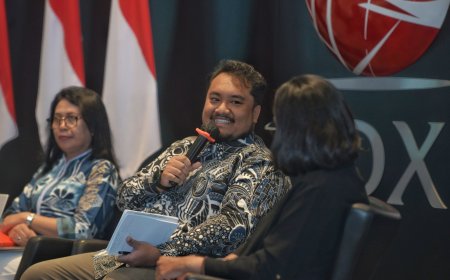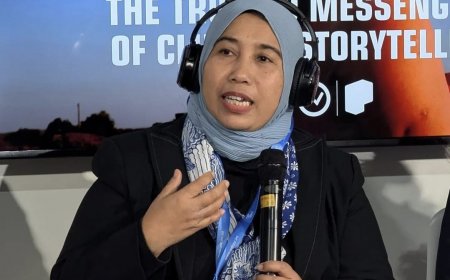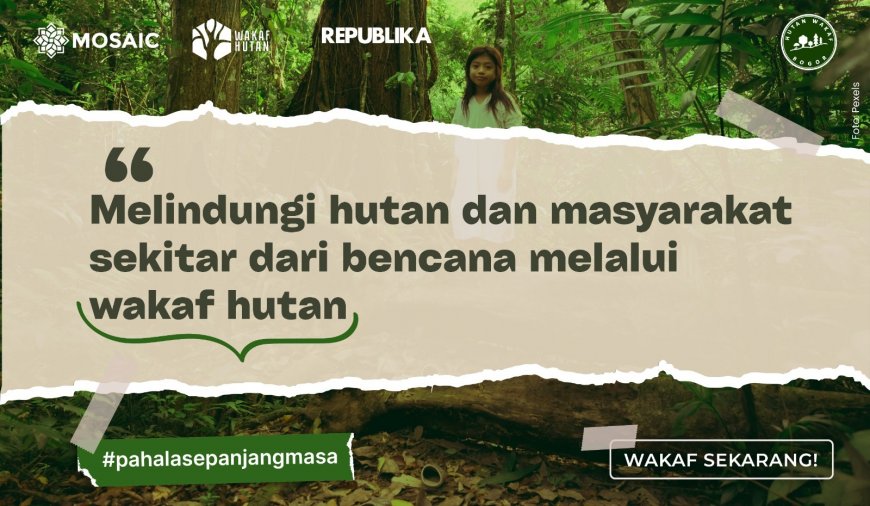Religious-Based Environmental Movement Continue to Grow
Muslims in Indonesia have actually shown various variations of environmental and climate concern through various activities and movements
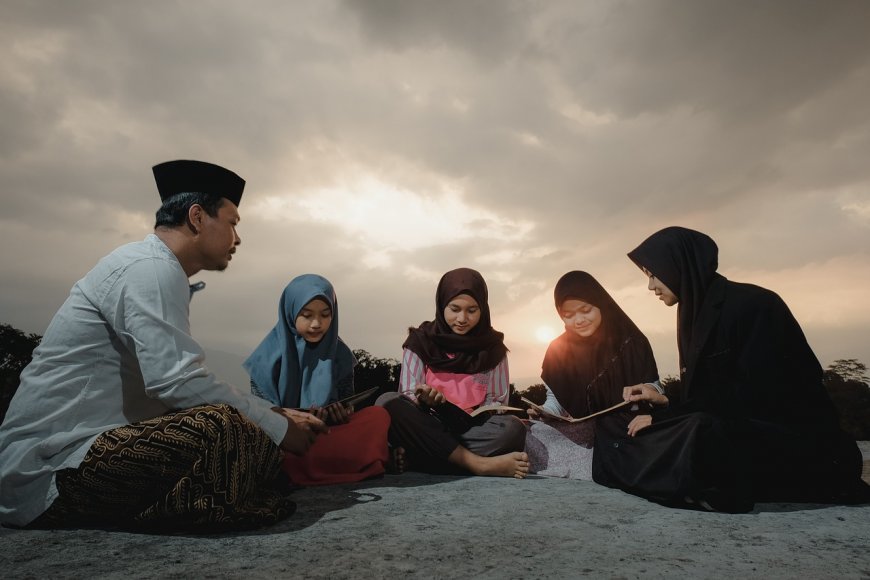
Environmental activists based on religion, beliefs and local wisdom are urging the government to be more serious about dealing with environmental damage. They encourage acceleration of conservation efforts and overcoming the climate crisis, not just rhetoric.
This urge was conveyed in a Focused Discussion entitled "Religious Environmentalism Action (REACT): Religious Identity and Environmental Activism: Actors, Strategies and Networks" which took place at the Jambuluwuk Thamrin Hotel, Jakarta, on 20-22 February 2024.
The discussion, which was initiated by the Center for Islamic and Community Studies (PPIM) UIN Jakarta, together with the Dutch Embassy, is part of the REACT project which aims to strengthen environmental action in Indonesia. Executive Director of PPIM UIN Jakarta, Didin Syafruddin, emphasized that the solution to the environmental crisis cannot only depend on the government and politicians. “Religious-based environmental movements have begun to grow. "When religion is brought up, it means there is an urgent matter that needs to be handled together," he said.

REACT Research Coordinator, Testriono, explained that this discussion aims to study environmental activism based on religion, belief and local wisdom and build networks between these actors. "We want to dig up information related to environmental activism and religious identity directly from activists," he said.
This discussion emphasizes the importance of environmental activism based on religion, belief and local wisdom in overcoming the environmental crisis. One of the discussion participants, a representative from Green Faith Indonesia, Ita Rosita, emphasized that efforts to preserve the environment, no matter how difficult, need to continue. Gathering strength and mainstreaming this issue is also the responsibility of religious leaders. “You can't give up hope. "Religious groups are the biggest group for change," he explained.
Meanwhile, the representative of the Dutch Embassy, Edwin Arifin, said that this activity aims to build a network to mobilize religious communities to take real action in preserving the environment. "We are pleased with the commitment of religious communities in Indonesia, which have long been involved in environmental conservation efforts," he said.
PPIM UIN Jakarta Advisory Board, Ismatu Ropi, added, PPIM UIN Jakarta really hopes for more solid cooperation between several institutions, and increased regular meetings to increase understanding for this joint effort. REACT Project Coordinator Saiful Umam hopes that the recommendations from this discussion can be followed up to mainstream environmental issues in religious discourse.
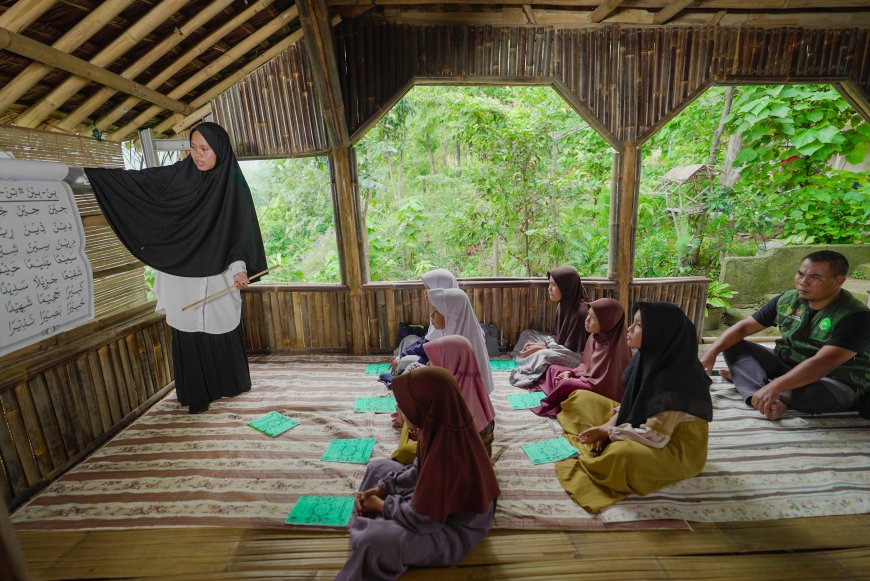
This focused discussion resulted in a joint call from activists, which includes: Commitment to Improving the Quality of the Environment * Prevention of Environmental Crimes and Law Enforcement * Mainstreaming Disaster Risk Reduction * Revitalizing Religious Values, Beliefs and Local Wisdom * Cooperation between the Government and Community Activists environment based on religion, belief and local wisdom, believing that this commitment is not only the foundation, but also a strong driver for realizing a sustainable and balanced environment in Indonesia.
The activists also issued a statement calling together to build a sustainable future for Indonesia through improving the quality of the environment, addressed to the President and Vice President of Indonesia, as well as related ministries and institutions.
- Environmental Quality Improvement Commitment Encourages the Indonesian government, at the central and regional levels, to make a real commitment to improving the quality of the environment. We urge the government to continuously educate the public in environmental stewardship and commit to addressing environmental issues and ecological disasters, especially related to the impacts of climate change, emissions, deforestation, and waste and waste management.
- Environmental Crime Prevention and Law Enforcement Urges governments to consistently prevent and crack down on environmental crimes that destroy ecosystems, impair public health, harm the state, degrade state authority, destroy culture, and harm morals and spirituality to the environment.
- Empowering Disaster Risk Reduction Encourages governments and all stakeholders to commit to prevention, mitigation and adaptation in disaster risk reduction efforts.
- Revitalization of Local Religious Values, Trust and Wisdom Urges the government to create pro-environmental regulations, and recognize and make the power of local religious traditions, beliefs and wisdom a moral and ethical pillar in dealing with environmental problems and ecological disasters.
- Government and Community Cooperation Encourages the creation of solid and sustainable cooperation between government and society. In the context of addressing environmental issues and ecological disasters, we must explore a deep understanding of the parallels between the traditions of local religions, beliefs and wisdom in order to build environmental awareness based on shared welfare. Finally, local faith-based environmental activists, beliefs, and wisdom believe that this commitment is not only a foundation, but also a powerful driver for realizing a sustainable and balanced environment in Indonesia.
In another statement, MOSAIC's Streering Committee, Rika Novayanti, said that there were often misunderstandings from research and world organizations that once called Indonesia a climate denial group. In fact, there are contexts of faith that various global researchers fail to capture, for example the context of the need to acknowledge God's power in every natural event as a form of surrender.
According to him, Muslims in Indonesia have actually shown various variations of environmental and climate concern through various activities and movements, ranging from group prayers to forming the green mosque movement. He revealed that various fatwas had also been issued regarding environmental issues. In fact, some of the initial approaches to environmental problems such as forest fires and drought were often very religious because they had concerns about social and environmental issues, such as: istighosah, mujahadah, and Istisqa' prayers.


